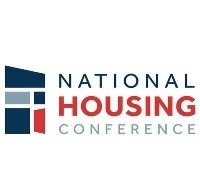Proposed rule will strengthen oversight of 20-year-old affordable housing block grant program
WASHINGTON, DC – November 4, 2011 – (RealEstateRama) — U.S. Housing and Urban Development Secretary Shaun Donovan today announced HUD is proposing new regulatory requirements under its HOME Investment Partnerships Program (HOME). HOME is the largest federal block grant to state and local governments designed exclusively to produce affordable housing for low-income families.Since 1992, the HOME Program has successfully assisted more than one million affordable homes for lower income families. However, Secretary Donovan believes the program can be strengthened to significantly boost the program’s performance at the local level.
“The HOME program is a success story for housing low-income Americans and creating jobs,” said Secretary Donovan. “However, there’s more we can do to boost the program’s performance and accountability. Through these new steps, we want to expand HOME’s impact and ensure that every dollar is used smartly to help families afford their homes. Since we took office, we have been committed to strengthening the HOME Program and ensuring that it creates affordable housing in an efficient and accountable way.”
In 2009, soon after taking office, the Obama Administration accelerated efforts to re-write some of the HOME’s compliance rules. Today, HUD is presenting Congress a proposed rule for a required review period and will shortly publish full details of the proposed regulatory improvements in the Federal Register. HUD has found that there are areas in the program’s underlying regulations that can improve program performance at the local level and ensure that high quality affordable housing is being provided for low-income families in a way that delivers the best value to the taxpayer.
Specifically, HUD’s proposed rule would:
- Require state and local governments to adopt policies and procedures to improve their oversight of projects, develop a system for assessing the relative risk of projects, and more closely monitor their HOME-funded sub-recipients;
- Require state and local governments to assess a developer’s capacity and the long-term viability of the project, before they commit HOME funds to a project;
- Require more frequent reporting by state and local ‘participating jurisdictions’ to enable HUD to more closely track projects once they’re under way; and
- Set a higher ‘performance bar’ by establishing specific timeframes for taking appropriate corrective actions against participating jurisdictions who fail to complete what they started.
Beyond improving the HOME program’s underlying regulations, HUD is in the process of improving the Department’s Integrated Disbursement and Information System (IDIS). IDIS is the primary data collection and reporting mechanism for tracking the commitment of HOME funds as well as the actual expenditure of these resources on a project-by-project basis. HUD is making significant changes to IDIS to improve grant management, reduce risk and address troubled projects.
###
HUD’s mission is to create strong, sustainable, inclusive communities and quality affordable homes for all.
HUD is working to strengthen the housing market to bolster the economy and protect consumers; meet the
need for quality affordable rental homes: utilize housing as a platform for improving quality of life; build
inclusive and sustainable communities free from discrimination; and transform the way HUD does business.
More information about HUD and its programs is available on the Internet at www.hud.gov and
http://espanol.hud.gov. You can also follow HUD on twitter @HUDnews, on facebook at
www.facebook.com/HUD, or sign up for news alerts on HUD’s News Listserv.
Contact:
Brian Sullivan
(202) 708-0685














